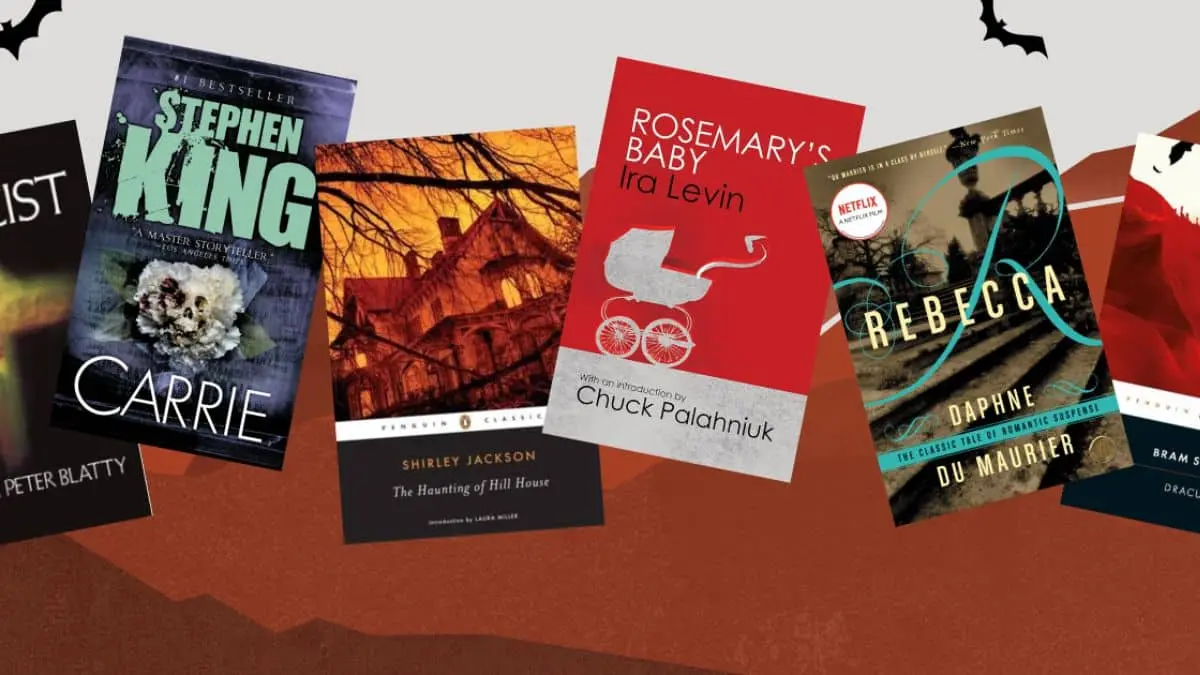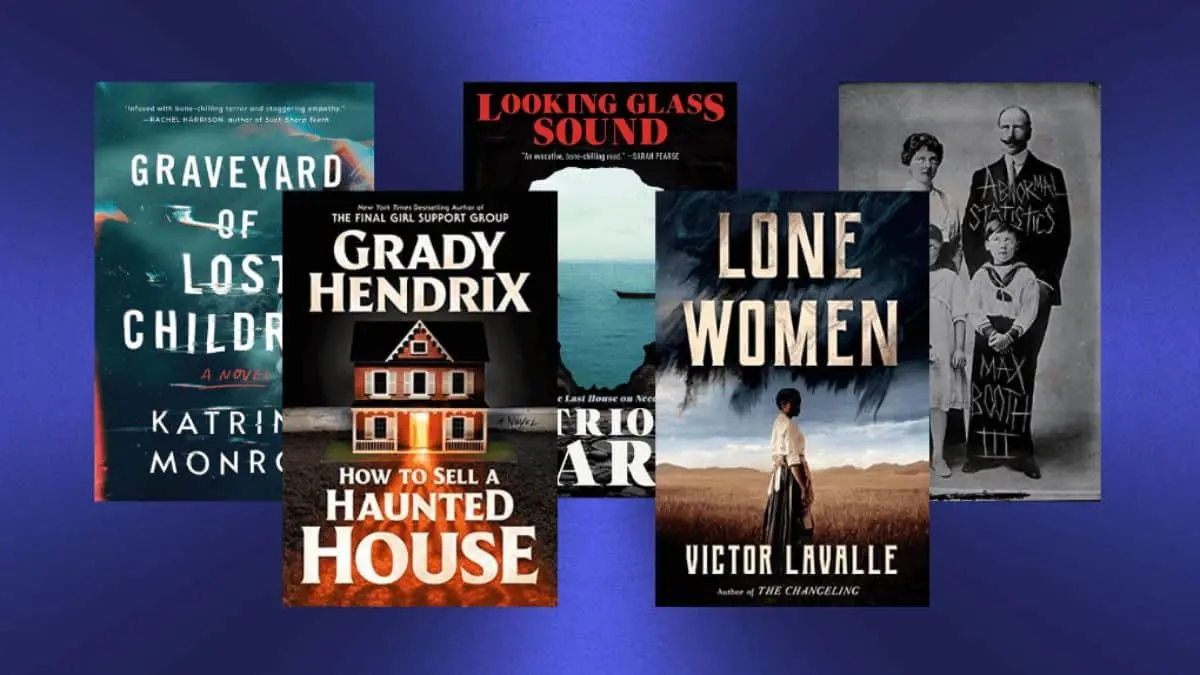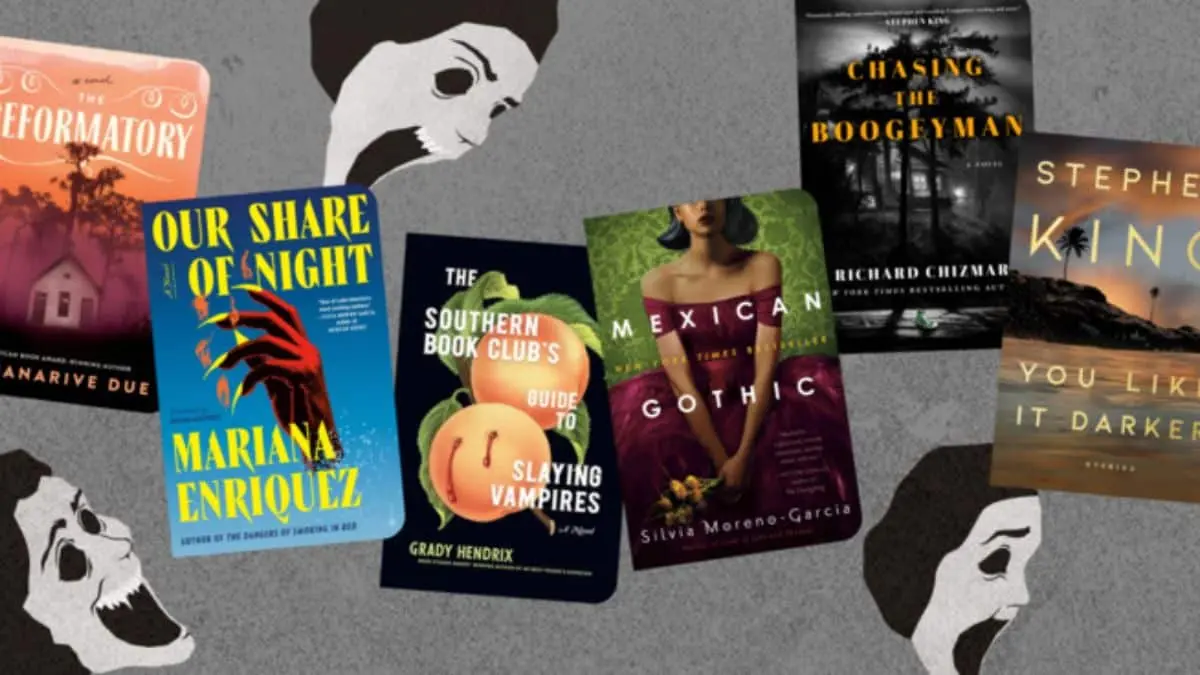When it comes to horror, we often think of grotesque monsters, supernatural entities, or blood-curdling creatures lurking in the shadows. While these elements certainly have their place in the genre, there’s something uniquely chilling about psychological horror—the kind that crawls into your mind and stays there long after the last page. But why is psychological horror often scarier than tales of monsters and gory mayhem? Let’s dig deep into the reasons.
Why Psychological Horror Books Are Scarier Than Monsters?
The Fear Comes From Within
Monsters, ghosts, and other supernatural entities are external threats. They’re scary because they represent the unknown, the other. But psychological horror works differently. Instead of focusing on external threats, it explores the terrors within our minds—our insecurities, traumas, and darkest fears.
Take Shirley Jackson’s The Haunting of Hill House as an example. There are no tangible monsters in the story. Instead, the horror stems from the characters’ internal struggles, especially Eleanor’s unraveling mental state. The reader is left questioning whether the house is haunted or if it’s all a manifestation of Eleanor’s fragile psyche. This ambiguity—this inability to pin down the source of fear—is what makes psychological horror so effective.
It’s Relatable
Most of us won’t ever encounter a bloodthirsty werewolf or a vengeful ghost, but who hasn’t experienced anxiety, self-doubt, or guilt? Psychological horror taps into universal human experiences, making it easier to connect with the characters and their fears. When you see a protagonist spiraling into paranoia or wrestling with moral dilemmas, you can’t help but feel a pang of recognition. This makes the horror hit closer to home.
Consider Gillian Flynn’s Sharp Objects. While not strictly horror, the novel’s psychological elements are deeply unsettling. Camille Preaker’s struggles with self-harm and her toxic relationship with her mother create an atmosphere of suffocating dread. There are no supernatural creatures in the story, yet it’s as chilling as any ghost tale because it mirrors real-life dysfunction and trauma.
The Power of the Unknown
In psychological horror, the scariest moments often come from not knowing. When you’re reading about a monster, there’s usually some sort of explanation—an origin story, a motive, or rules that govern its behavior. But psychological horror thrives on ambiguity. Is the protagonist losing their grip on reality, or is something truly sinister happening? Are the people around them trustworthy, or are they part of a larger conspiracy? This uncertainty keeps readers on edge.
For example, in The Silent Patient by Alex Michaelides, the Mystery revolves around a woman who has stopped speaking after a violent act. As the story unfolds, the reader’s perception of what’s true and what’s not is constantly challenged. The twists and turns keep you guessing, making the story deeply unsettling.

It Explores Taboo Themes
Psychological horror doesn’t shy away from uncomfortable topics. It delves into the dark corners of the human experience, tackling issues like mental illness, abuse, addiction, and moral corruption. These themes are inherently disturbing because they force us to confront aspects of ourselves and society that we’d rather ignore.
Take American Psycho by Bret Easton Ellis. The book’s protagonist, Patrick Bateman, is a seemingly successful, well-adjusted individual on the surface. But his psychopathy and moral depravity reveal the emptiness and corruption of the materialistic world he inhabits. The horror isn’t just in Bateman’s violent acts but in the realization that such darkness can exist within someone who appears “normal.”
The Atmosphere Is Unparalleled
Psychological horror is a masterclass in atmosphere. The tension builds slowly, layer by layer, creating a sense of dread that’s almost unbearable. The setting often plays a crucial role in this—a dilapidated house, an isolated town, or even the confines of the protagonist’s mind can become suffocatingly oppressive.
A brilliant example is Daphne du Maurier’s Rebecca. The unnamed narrator’s unease grows as she grapples with the lingering presence of her husband’s first wife, Rebecca. The gothic mansion of Manderley becomes a character in its own right, shrouded in mystery and secrets. The psychological tension builds to a crescendo, leaving readers deeply unsettled.
It Lingers Long After the Last Page
One of the most significant differences between psychological horror and monster-centric stories is their lasting impact. A tale of monsters might leave you jumping at shadows for a few days, but psychological horror burrows into your brain. It makes you question your perceptions, your relationships, and even your own mind.
Take Gone Girl by Gillian Flynn. The psychological manipulation and mind games between Nick and Amy Dunne are horrifying because they’re plausible. The book forces readers to confront the darker sides of love, trust, and marriage, leaving a lasting impression that’s hard to shake.

Monsters Can Be Defeated, But Your Mind? Not So Much
In traditional horror, there’s often a sense of closure. The monster is defeated, the curse is lifted, or the villain is vanquished. But psychological horror rarely offers such resolution. Instead, it leaves you grappling with lingering questions and unresolved tension.
In We Have Always Lived in the Castle by Shirley Jackson, the mystery of what happened to the Blackwood family is never fully explained. The protagonists, Merricat and Constance, retreat further into their isolated, delusional world, leaving the reader with an unsettling sense of incompleteness. This lack of closure is what makes the story so haunting.
The Real Monsters Are Human
At its core, psychological horror reminds us that the scariest monsters aren’t supernatural—they’re human. Whether it’s a manipulative family member, a deceitful friend, or even the protagonist’s own mind, the horror comes from something all too familiar.
Stephen King’s Misery perfectly illustrates this. Annie Wilkes isn’t a demon or a ghost. She’s an ordinary woman with extraordinary delusions and a dangerous obsession. Her unpredictability and capacity for cruelty make her far scarier than any monster lurking under the bed.
Also Read: How Famous Authors Found Inspiration for Their Bestselling Novels









